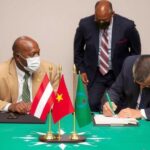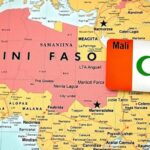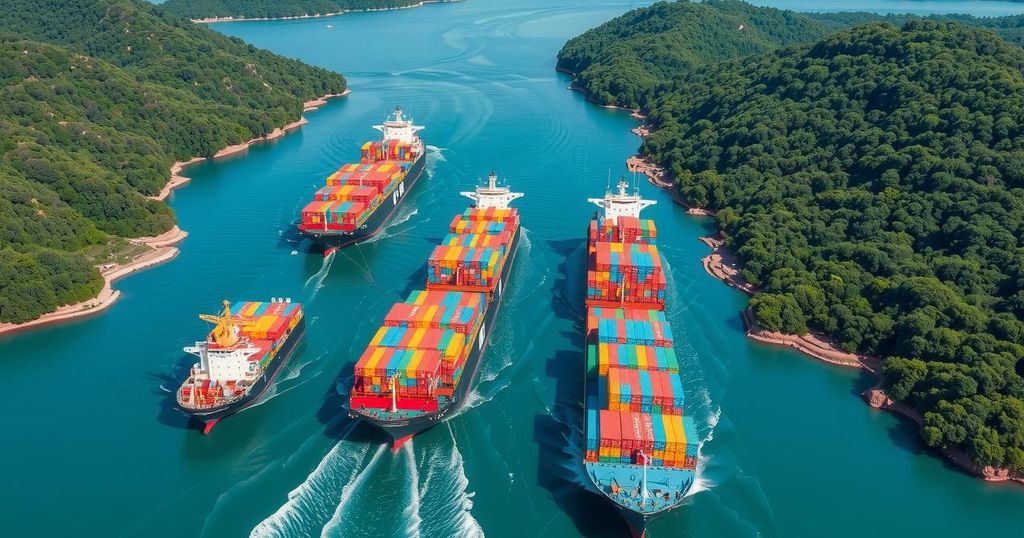Ambitious West African Highway Project Aims to Reinforce Ecowas Amid Political Turmoil
West African leaders will meet to address the exits of Mali, Burkina Faso, and Niger from Ecowas while launching a major highway project linking Ivory Coast to Nigeria. The $15.6 billion highway, intended to enhance trade and economic collaboration, reflects a strategic response to political turmoil and aims to foster renewed confidence in the region despite military regimes’ current stance. By improving regional trade routes, the initiative may eventually entice the departing states back into the fold of Ecowas.
West African leaders are preparing for a significant summit in Nigeria’s capital, Abuja, to address the challenges posed by the recent exits of Mali, Burkina Faso, and Niger from the Economic Community of West African States (Ecowas). While it is unlikely the military regimes in these countries will reverse their decisions, the region is simultaneously advancing plans for an ambitious 1,028-kilometer highway connecting Nigeria and Ivory Coast through Ghana, Togo, and Benin, slated for construction in 2026. This $15.6 billion highway project aims not only to foster economic growth but also to bolster the unity and confidence of Ecowas in light of the recent political turmoil. Historically, such large-scale infrastructure projects have proven to strengthen regional ties and encourage political stability by enhancing trade and mobility among member states.
The development of this transport corridor mirrors the European Union’s successful integration strategies and represents a strategic response to the recent military coups that have strained relations between member nations. Notably, the project was initially approved eight years ago, long before the military takeovers, and has the potential to restore some confidence within Ecowas. The upcoming highway is predicted to create approximately 70,000 jobs and will include provisions for a railway line to facilitate trade connectivity along the coast. By improving overland trade routes and reducing bureaucratic challenges at borders, the highway is expected to significantly enhance the region’s competitiveness and appeal to foreign investors.
Despite the ongoing political tensions, economic integration remains paramount. The anticipated flow of goods, including livestock and produce between the landlocked Sahel states and their coastal counterparts, underscores the intrinsic economic links in the region. Current hostilities towards Ecowas may be politically advantageous for the military regimes; thus, the remaining member states must focus on driving growth to showcase the benefits of cooperation. Through revitalizing its economy with infrastructure projects like the coastal highway, Ecowas may, in time, reconcile with the dissident states and restore a unified regional identity.
The article discusses the strategic meeting of West African leaders amid the growing political instability marked by the withdrawal of Mali, Burkina Faso, and Niger from the Ecowas bloc. This backdrop provides a critical context for the proposed infrastructure project aimed at fostering economic ties and regional integration. The highway plan is not merely about transportation; it reflects a broader economic strategy aimed at counteracting the political disruptions caused by recent military coups, presenting hopes for a reinvigorated cooperative framework in West Africa.
In conclusion, the proposed highway project from Ivory Coast to Nigeria stands as a beacon of hope for reinvigorating cooperation within Ecowas. By enhancing regional connectivity and economic development, it aims to address the challenges posed by political dissent among member states. Should the project unfold successfully, it may not only stimulate economic revival but also encourage former member states to reconsider their positions within the bloc, heralding a new era of unity and cooperation in West Africa.
Original Source: www.bbc.com








Post Comment